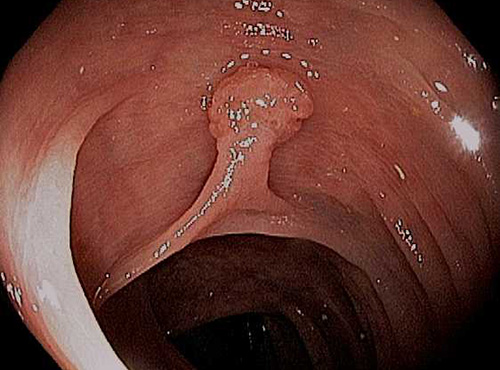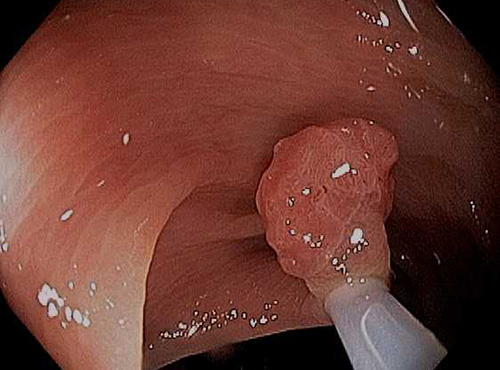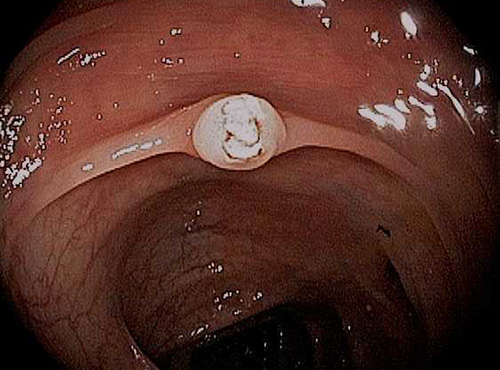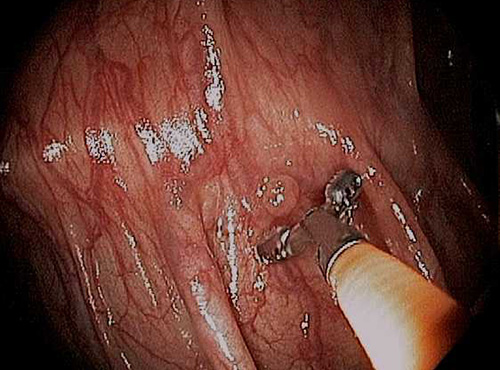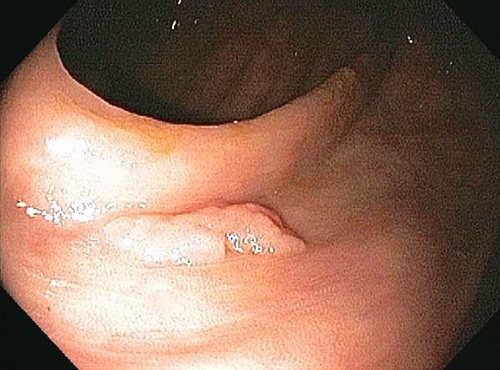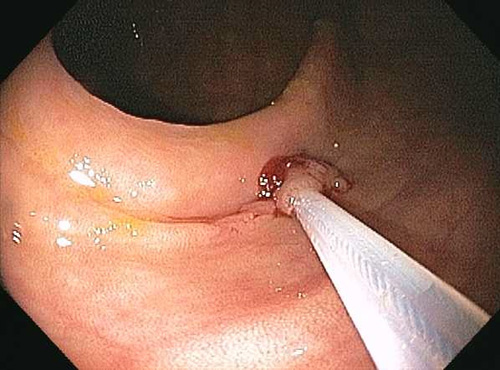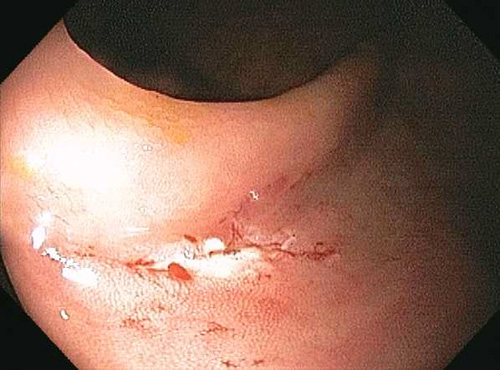What Are Colorectal Polyps?
Colon Cancer Disease is the #1 Preventable Cause of Cancer Death. Colorectal polyps are precancerous growths of the lining of the colon and rectum. They vary in morphology, location, size, type and, most importantly, in their propensity to turn into colon cancer. This emphasizes a paramount principle – almost all colon cancers derive from prior colon polyps. Thus, if one removes colon polyps during screening colonoscopies, the risk of colon cancer decreases dramatically.
Growth of a Colon Tumor
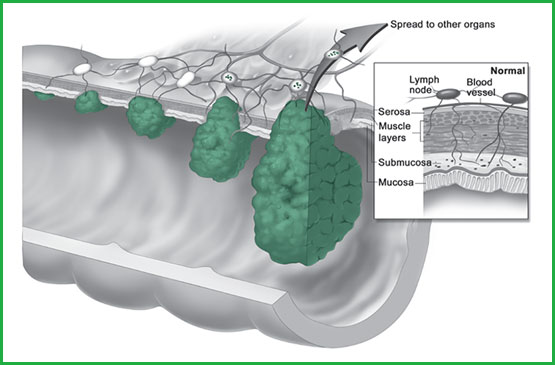
Normal Colon
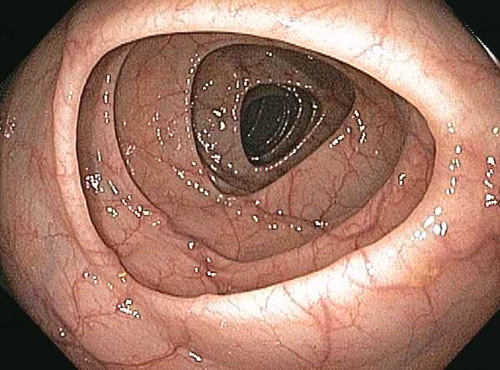
Small Polyp
Medium Polyp
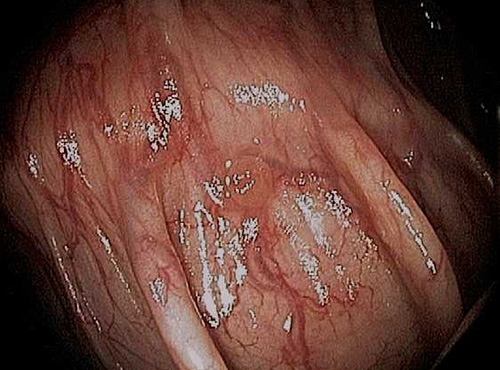
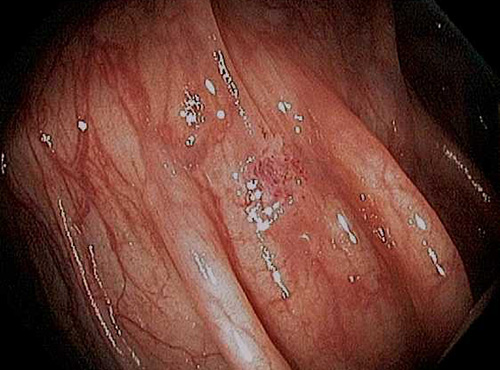
Colon Cancer
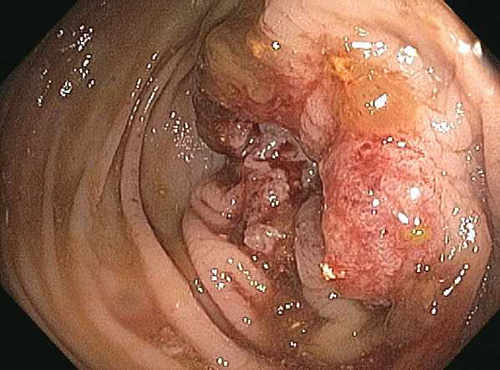
Who Is At Risk Of Developing Colorectal Polyps/Cancer?
In the general population, there is a 5% lifetime risk of developing cancer and about a quarter of patients at the age of 50 years old have high-risk colon polyps. This risk doubles in those with a family history of colorectal polyps or cancer or quadruples if multiple family members were afflicted at a young age. Some patients have genetic syndromes, listed to the right, which greatly increase their risk of developing colon polyps and subsequent colon cancer along with other extra-colonic diseases and cancers. Aside from family history and genetic syndromes, there are other factors, listed to the right, which increase your risk of developing colon polyps and subsequent colon cancer.
Genetic Syndromes
Inflammatory Bowel Disease
Familial Adenomatous Polyposis
Lynch Syndrome
Serrated Polyposis Syndrome
Juvenile Polyposis Syndrome
Cronkhite Canada Syndrome
Peutz Jeghers Syndrome
Cowden Syndrome
BRCA Syndrome
Other Factors
African-American Ethnicity
Age > 50 Years Old
Male Gender
Living In An Urban Setting
Diet High In Fat & Red Meat
Obesity
Tobacco & Alcohol Use
Inflammatory Bowel Disease
Diabetes
Do Colorectal Polyps/Cancer Cause Symptoms?

It is important to understand that polyps generally do NOT cause symptoms alerting you of their presence – hence the use of screening colonoscopies. Very large colon polyps and cancer can manifest with symptoms of unintentional weight loss, change in bowel habits, including constipation and diarrhea, occult or even overt bleeding with anemia and abdominal pain.
What Can I Do To Decrease My Risk Of Forming Colorectal Polyps/Cancer?
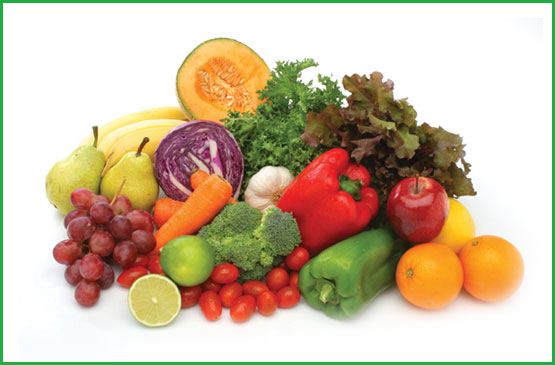
In addition to losing weight by diet and exercise and eliminating modifiable risk factors listed earlier, supplementing your diet with calcium, fibers, fruits, vegetables and foods with high anti-oxidant content (selenium, folate, carotene, vitamin C, vitamin E, vitamin D) has been shown to decrease one’s risk of developing colorectal polyps and subsequent cancer. In addition, certain medications appear to decrease one’s risk including the use of aspirin and hormone replacement therapy. These measures may be important to consider, especially in someone who is at a higher risk because of family history. In the end, removal of colon polyps during colonoscopy remains the most effective way to decrease your risk of colon cancer.

